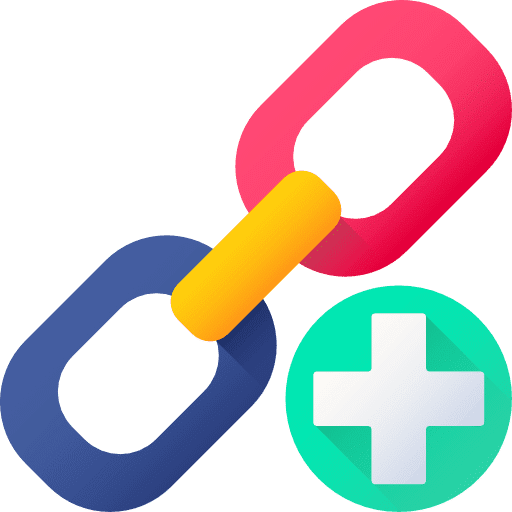Top 9 Mistakes Your Bulk Email Services Providers Might be
Email marketing has always been an important piece of digital marketing success for businesses. Hence, it also won’t be wrong
Are you looking for SEO Services in India? Look no further than Getsvision Solutions, recognized as the premier SEO Company in the country. Our credibility is backed by solid reasons, including our team of top-rated SEO experts boasting over a decade of experience in both domestic and global campaigns.

Seo Services
SEO remains crucial for digital marketing as it significantly improves business visibility and expands audience reach. It’s key for promoting online presence and drawing more attention to what a business has to offer. Let’s dig deeper into the reasons why SEO stands as an important marketing tool to date –

SEO is a budget-friendly method for increasing website traffic. In contrast to continuous spending on paid advertising, SEO offers sustainable results with minimal ongoing expenses. It's an efficient and cost-effective strategy to enhance your online presence and attract visitors to your website over the long term.

SEO boosts your website's user experience by organizing and refining its structure and content. It not only helps search engines easily index your site but also makes it more informative and easier to navigate for visitors, enhancing engagement. An SEO Expert specializes in optimizing these aspects.

High search engine rankings make your website trustworthy. People rely on search engines, so when your site ranks well, it builds trust with your audience. It signals that your website is a reliable and authoritative source of information, enhancing credibility with your target audience.

In the competitive landscape, investing in SEO gives businesses an edge. Optimizing your website for search engines attracts more traffic, generating leads and boosting sales and revenue. Search Engine Optimization is the key to gaining a competitive advantage, ensuring your business stands out and succeeds in the online market.
We offer wide range of SEO services including the following –

Getsvision Solutions, a Professional SEO Services agency, excels in identifying and elevating your site's ranking for specific keywords. Our SEO experts analyze your current rankings, consider your desired keywords, and conduct thorough research to curate a strategic keyword list tailored to your niche and competitive environment. This targeted approach ensures your website gains visibility and relevance in search results, aligning with your business goals and market dynamics.

Increase your local business visibility online by focusing on local SEO. With 64% of customers searching for local businesses on the internet, it's crucial. We enhance your Google Business Profile through optimization, specifically with Google My Business (GMB), attracting customers with high intent. Our services not only optimize your GMB profile but also manage your online reputation, helping you build a stronger local following for your company.

Link building is crucial for higher search rankings, but not all links are equal. That's where Getsvision Solutions, an SEO company, comes in. With a dedicated team, we specialize in building connections with high-quality, relevant websites. Partnering with us ensures your website gains valuable backlinks, contributing to improved visibility and rankings in search results. Trust us to enhance your link profile and boost your online presence effectively.

Off-page SEO is key to boosting your brand's credibility and visibility online. By collaborating with us as your SEO Marketing Company, we can showcase your expertise through social media, link building, and influencer marketing. This approach generates quality links and positive reviews, enhancing your online presence effectively.

Enhancing your website's back-end through technical SEO, like improving page speed, can boost rankings. Resolving these issues facilitates a smoother crawling process for search engines on your website. When search engines are pleased, your rankings improve, bringing joy to your Search Engine Marketing efforts.

Enhance your website's visibility and attract quality traffic with Getsvision Solutions. Our on-page SEO services adhere to search engine guidelines, enhancing your site's credibility. We produce original, valuable content, fine-tune headlines, HTML tags, and use high-quality images, all orchestrated by our SEO professionals to elevate your online presence.

Getsvision Solutions is a top-rated SEO Company specializing in services for businesses with multiple locations. We create location-specific content, utilize Nextdoor advertising, and offer bespoke web design to enhance your brand's impact, driving more leads and sales. Our tailored approach ensures your franchise stands out and thrives online.

Boost your Shopify store's online presence with our comprehensive Search Engine Optimization Services. Our experts offer round-the-clock customer support, ensuring your needs is met promptly. We conduct Shopify SEO audits, provide web design services, manage paid advertising, and publish review responses, all aimed at optimizing your customers' Shopify experience and expanding your market reach.

Stand out on Amazon and reach millions of potential customers ready to make a purchase with our Amazon SEO services. We enhance your product listings, optimize ad placements, and employ goal-driven Amazon Marketing Services (AMS) SEO strategies to effectively promote your products to the right audience. Differentiate your brand and maximize your visibility on the Amazon marketplace.

Take your online store's visibility and customer retention with our eCommerce SEO services. We initiate targeted email marketing campaigns and fine-tune your website for mobile and voice search, ensuring a personalized shopping experience around the clock. Our strategies are designed to offer your customers convenience and elevate your brand's reach.

Count on our SEO firm for top-notch content writing services. Our skilled writers craft SEO-friendly content for your website, from engaging blog posts to optimizing existing service and product pages with additional content. Regularly updating your site with fresh content is favored by search engines, and we're here to enhance your search marketing efforts through impactful writing.

Boost your online revenue and customer lifetime value with Getsvision Solutions' Conversion Rate Optimization (CRO) services. Our SEO marketing company combines pay-per-click (PPC) marketing with SEO to enhance your conversion chances. Our experts conduct website analysis, optimize landing pages, and utilize A/B split testing to refine your strategy and attract SEO Clients.
Our goal is to help our clients understand the difficult and often intimidating process of search engine optimization. To achieve this, we assign a dedicated Getsvision Solutions SEO professional to each client, serving as your go-to contact for all project management needs. This approach ensures you have a familiar expert who deeply understands your business and its unique requirements, making the SEO journey smoother and more personalized. This streamlined process is part of our commitment to keep our SEO Services Cost as low as possible.
In the dynamic world of SEO, change is constant, driven by multiple Google algorithm updates yearly affecting ranking factors. We stay ahead by keeping abreast of the latest news and trends. Our search engine optimisation company is continuously learning, adopting new techniques, and staying updated to remain at the forefront. Be confident that our SEO approach is proactive, ensuring we anticipate and address changes effectively."
With over 12 years of expertise, Getsvision Solutions has been aiding businesses across various sectors in expanding their online presence for increased revenue. We boast a track record of client success stories, catering to businesses of all sizes aiming to boost online traffic and leads. Many of our SEO experts have been industry leaders for over a decade, and our collaborative team approach ensures that any issues are swiftly addressed with a collective effort.
Our core values, Relationships and Results, define our commitment to clients. We prioritize every client, offering dedicated SEO experts proficient in fueling growth for businesses of all sizes, be it small enterprises or large national franchises. At our SEO company, we emphasize amplifying our clients' voices, striving daily to showcase our dedication. With a focus on building strong relationships and delivering tangible results, we consistently work towards achieving significant growth for our clients.
Unlike others who may obscure their methods, we believe in complete transparency, allowing you to directly observe how our SEO strategies enhance your online revenue. We provide detailed reports, including Google Analytics insights, showing your website's SEO progress. You'll receive updates on keyword rankings, a monthly summary of executed SEO tasks, and the option for a monthly video summary to discuss the advancements and strategies. Trust us for clear, accountable Search Engine Optimization Services in India.
At Getsvision Solutions, we value honesty and personal responsibility in our work. Unlike some SEO firms, we prioritize these principles, ensuring our clients don't suffer. Specializing in internet marketing and SEO services, our goal is to elevate rankings, increase traffic, and boost conversions, providing a positive ROI for our clients' websites. We are dedicated to upholding our SEO Code of Ethics throughout the process, ensuring transparent and ethical practices for the benefit of our clients. Reach out to our professional SEO Agency for a thorough website audit. Don't hesitate, call us now for a complimentary SEO proposal.
Looking to learn more about Search Engine Optimization for your business? Browse our FAQs:
SEO stands for Search Engine Optimisation. It’s a set of practices designed to improve the appearance and positioning of web pages in organic search results. For businesses, SEO is crucial because it helps increase the visibility of your website, driving more potential customers to your site, improving engagement, and potentially increasing sales.
There are primarily three types of SEO services: On-page SEO (optimizing website elements like content, images, and HTML), Off-page SEO (building backlinks to increase the website’s credibility), and Technical SEO (improving aspects like site speed, mobile-friendliness, and website architecture for better ranking). SEO Services Provider
The cost of Search Engine Optimization Services can vary widely depending on the scope, complexity, and goals of your project. Prices can range from a few hundred dollars a month for basic services to several thousand for more comprehensive, tailored strategies.
Results from SEO efforts typically take anywhere from 3 to 6 months to become evident. The time frame varies depending on numerous factors, including the website’s current state, competition in the industry, and the strategies implemented.
One common misconception is that SEO is a one-time task. In reality, SEO requires ongoing effort and adaptation to changing search engine algorithms and market trends to maintain and improve rankings.
Yes, local SEO services are designed to improve your visibility in local search results, making your business more visible to people searching for your products or services in your geographic area.
Improving your site’s ranking for specific keywords involves a combination of on-page SEO tactics, such as optimizing content and meta tags for those keywords, and off-page strategies, like building quality backlinks from reputable sites in your industry.
Most SEO service providers offer monthly progress reports that detail key performance indicators (KPIs) such as rankings for targeted keywords, organic traffic, bounce rate, and other metrics that show how well your site is performing in search.
A quality SEO service provider focuses on building high-quality, relevant backlinks through content marketing, guest blogging, and partnership opportunities, rather than pursuing large quantities of low-quality links.
Business owners can contribute to their website’s SEO by regularly creating high-quality, relevant content, ensuring their site is user-friendly and mobile-responsive, and staying informed about SEO best practices and search engine algorithm updates. However, it is highly recommended to hire Professional Search Engine Optimisation Services.
Email marketing has always been an important piece of digital marketing success for businesses. Hence, it also won’t be wrong
The digital landscape is rapidly changing. It is highly important to stay updated with those changes and implement them in
Bulk email marketing is an important part of digital marketing campaigns for businesses. Just like other marketing efforts, bulk email
A marketing audit is an evaluation of your company’s marketing efforts and their effectiveness. Here what you will get:

Awarded Marketing Agency




